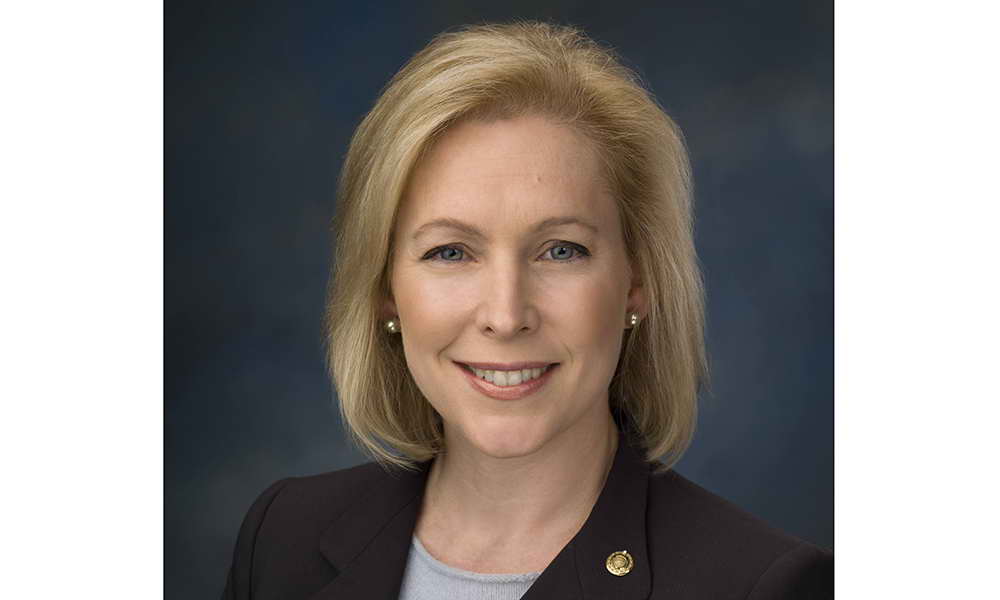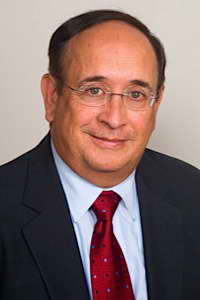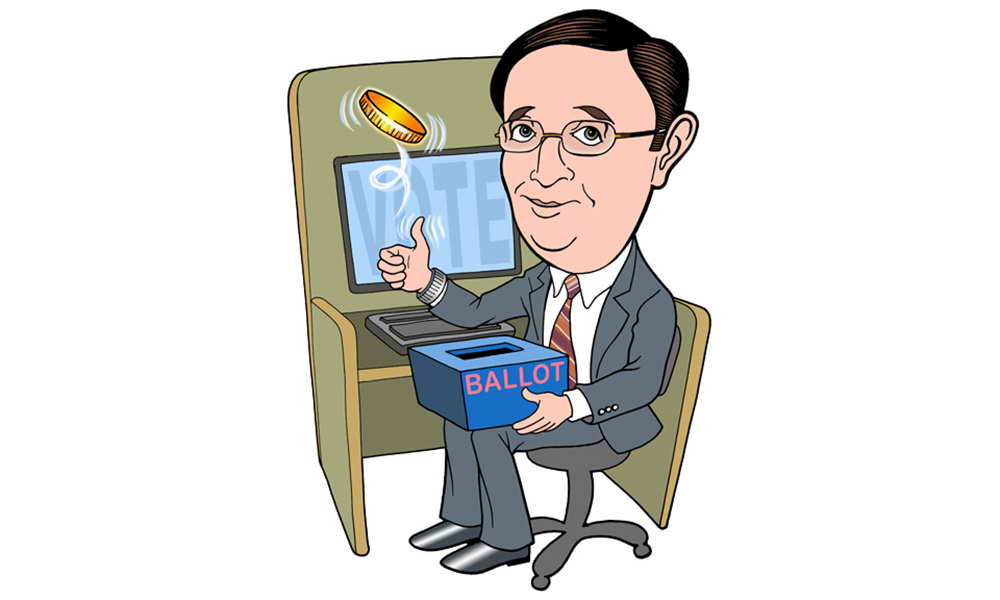The Marist Poll’s Lee Miringoff says that after this year’s strong showing, the New York GOP could be looking to knock Gillibrand and other Democrats out of office:
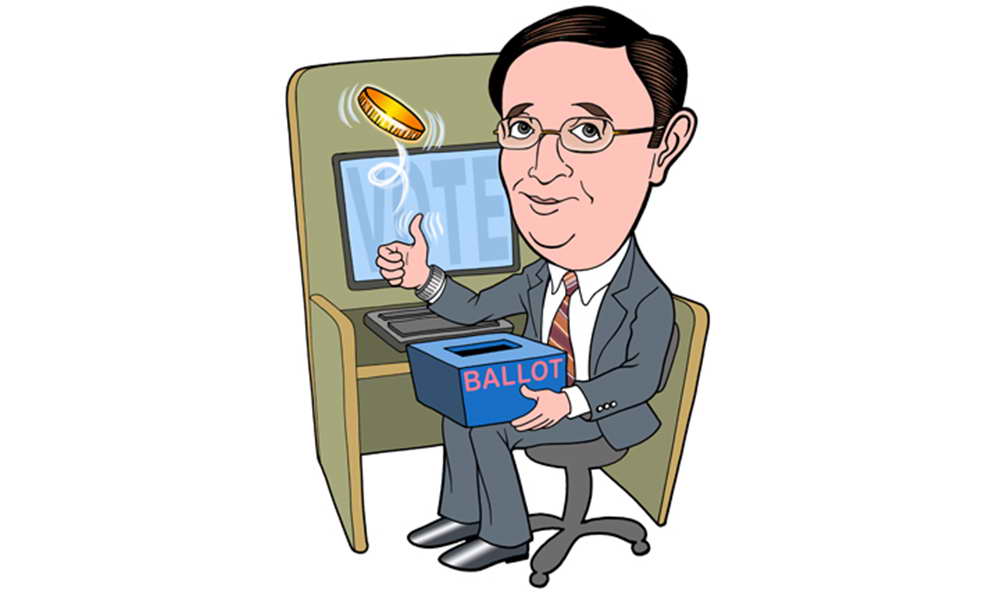
11/23: Rudy Giuliani…What If?
November 23, 2009
By Dr. Lee M. Miringoff
What if Rudy Giuliani decides to challenge Democrat Kirsten Gillibrand for U.S. Senate? According to the Marist Poll, Giuliani would start the race as the morning line favorite against New York’s junior senator. Giuliani leads Gillibrand by 14 percentage points. But, let’s drill down in the numbers to find out why.
Rudy Giuliani gets a nod from a notable 48% of his former New York City constituents compared with 45% who support Gillibrand. No laughing matter for any Democrat running statewide, and especially for the former upstate Congresswoman. Gillibrand has had difficulty connecting with traditionally Democratic downstate voters with her prior pro-gun positions, vote in support of the Iraq War, and her stand on amnesty for illegal immigrants. Not surprisingly, upstate, she fares decently for a Democrat, attracting 42% of the vote. But, in the pivotal suburbs surrounding New York City, Giuliani clobbers Gillibrand by nearly 2 to 1. Can Giuliani overcome the huge registration advantage for Democrats in New York State? He currently receives support from 33% of these voters.
Now, what is unusual about a potential Giuliani-Gillibrand matchup is that the incumbent Kirsten Gillibrand, unlike the challenger, is still largely unknown to many New Yorkers. 24% of voters statewide don’t know enough about her to voice an opinion. With so many New York voters still on the fence, her approval rating statewide is a measly 25%…. certainly a target for team Giuliani.
There is a gender gap in the numbers as well. Gillibrand trails Giuliani by 24 percentage points among men but breaks almost even among women. Giuliani will need to tread lightly on this one lest he create a Lazio-Clinton backlash… which occurred in the 2000 U.S. Senate campaign when Lazio bullied Clinton during a debate.
Several additional factors would make this a race to watch. 2010 is not shaping up at present as a banner year for Democrats nationally. Will New York Democrats be immune from this trend?
What about Giuliani’s public image? He is well known to voters as a can-do executive type. Will he be able, during a campaign, to convince enough New Yorkers that he can be effective in a consensus building, collegial, legislative arena?
And, what impact will the trial of the five accused 9-11 plotters in the shadow of Ground Zero have on the issue agenda for this campaign? Will candidate Giuliani be able to rekindle voters’ memories of him as “America’s Mayor” in a world that still has its extremist unrest?
Rudy Giuliani hasn’t won in the voting booth since 1997….a long-time in political years. If he still harbors presidential aspirations, a victory in New York over Kirsten Gillibrand, capturing the Senate seat only recently held by Hillary Clinton, would catapult him into the national spotlight.

11/19: Carving Out a New Political Path?
November 19, 2009
By Dr. Lee M. Miringoff
The shock waves resulting from Rudy Giuliani’s decision not to run for governor in New York State in 2010 are most immediate in Albany but they are also being felt as far south as Washington, D.C. Giuliani may have recognized that the road to the Executive Mansion could have been blocked by New York State Attorney General Andrew Cuomo. Giuliani trails Cuomo by 10 percentage points in today’s Marist Poll.
But, what if this executive can-do former NYC mayor decides to join the legislative branch and make a run for U.S. Senate instead? Here, his prospects are far brighter. In a matchup against New York’s junior Senator Kirsten Gillibrand, Giuliani leads her by 54% to 40%. A Senate win for Giuliani in this heavily Democratic state would be a huge national story. It would also be an equally huge embarrassment for the Obama White House. It could even rekindle any hopes Giuliani has about another presidential run.
Rudy Giuliani is a marquee name in GOP circles in New York. But, if he harbors any presidential aspirations, he needs to win something. His last electoral success was his re-election as NYC mayor in 1997… a lifetime ago in politics. His on-again, off-again campaign in 2000 and his truncated run for the White House in 2008 raise serious doubts about his electoral viability.
Yet, this may turn out to be a stroke of political acumen for team Rudy. A decision by Giuliani to run for the U.S. Senate may ultimately shake things up nationally as much as his decision to pull out of the race for governor has altered the political landscape in Albany.

True Confessions of a Quasi-Reality TV Watcher
November 16, 2009
I have a confession. I am a reality TV watcher. And, believe it or not, that realization shocked me. Let me explain. When I sat down to write this blog, I had every intention to rail against the genre. In fact, I identify with the 52% of Americans who The Marist Poll discovered prefer sitcoms to reality programs.
 Let’s face it, how often do you quote a reality show? (The exception, of course, is Trump’s, “You’re Fired.”) Think back. Where would we be without Ralph Kramden’s, “To the Moon, Alice,” Ricky Ricardo’s, “Lucy, you have some ‘splainin’ to do,” the Fonz’s, “Ehhh,” and Jerry Seinfeld’s, “Yada, Yada, Yada.” These memorable lines became pop culture catch phrases and contributed to the creation of pop culture icons that still entertain audiences of all ages today.
Let’s face it, how often do you quote a reality show? (The exception, of course, is Trump’s, “You’re Fired.”) Think back. Where would we be without Ralph Kramden’s, “To the Moon, Alice,” Ricky Ricardo’s, “Lucy, you have some ‘splainin’ to do,” the Fonz’s, “Ehhh,” and Jerry Seinfeld’s, “Yada, Yada, Yada.” These memorable lines became pop culture catch phrases and contributed to the creation of pop culture icons that still entertain audiences of all ages today.
I remember being devastated as a kid when some of my favorite shows (Growing Pains and Who’s the Boss?) went off the air. As a teenager, I rarely missed a Friends episode for fear of missing the big moment when Ross and Rachel finally got together. The truth is these sitcoms invited us into a fantasy world, often provided us with a valuable lesson, and allowed us couch potatoes to escape from reality for half an hour.
Reality television has been around for awhile, but to me, the early rumblings of the reality TV revolution occurred in the 1990’s with MTV’s The Real World. But, it wasn’t until Survivor burst onto the scene nearly a decade later that the genre really took off, and with American Idol’s ratings leaving its competitors in the dust, it’s hard not to acknowledge the success of these types of shows. But, where are the lasting, meaningful memories? Where is the moral takeaway?
I guess these shows fulfill some voyeuristic need in our society, and perhaps, make us feel better about ourselves when we compare our actions to the plotting and debauchery featured in many of these shows. (I do suppose, though, witnessing the fallout from a “character’s” drunken, embarrassing behavior can provide a few lessons, but how many of those scenes are actual lapses in judgment and not some planned, half-baked attempt at achieving b-level celebrity or launching one’s acting career?)
So, that was my rant. Then, I began to examine my own viewing habits. I LOVED the first season of Survivor and tuned into the early world of Big Brother. I rushed home from work to catch American Idol’s first, second, and third seasons, and Dancing with the Stars remains a must-see for me. But, as the hype grew around many of these shows, my interest waned.
That brings us to today. Although I less frequently indulge in the bigger name reality shows (DWTS being the exception), I do watch some of the smaller ones. Most of my preferences include shows on TLC, HGTV, and the History Channel. Am I immune from the likes of Bridezillas? No, but they are my exception rather than my rule. So, I guess you could say that, when it comes to reality television, I prefer less drama-riddled broadcasts and ones from which I can actually learn something. And, that’s an important distinction to make.
Reality television is hard to miss. Production costs are far less than are those for sitcoms and dramas. So, it’s doubtful these kinds of shows will disappear. But, if you are as dissatisfied with some of the trash depicted in reality TV shows as I, and you long for the days of good old sitcoms, choose your reality TV consumption wisely. Producers will get the message, and hopefully will raise the bar when producing reality programs.

11/4: The Rap on Polls
November 4, 2009
By Dr. Lee M. Miringoff
What happened in the race for New York City mayor?! Mayor Michael Bloomberg squeaked out a slim victory over Democratic challenger Bill Thompson last night despite the healthy lead given to Bloomberg by all the pre-election polls. The short of it … the scenario is a textbook case of pre-election poll analysis.
It is not unusual in contests between a well-known incumbent (Bloomberg) and a relatively unknown challenger (Thompson) that the incumbent ends up getting pretty much the same number he was attracting in pre-election polls. Undecided voters tend to find the challenger or not vote at all, having already rejected the incumbent.
In the closing weeks of the campaign, all public pre-election polls had Bloomberg in the low 50s, regardless of the margin over Thompson. This is reminiscent of the outcome in 1994 when pre-election polls showed then three-term incumbent Mario Cuomo with a huge lead over relatively unknown challenger George Pataki in the New York State race for governor. The bad news for Cuomo was that he was below 50% despite his big “lead.”
It is not surprising, therefore, that the 2009 race for mayor got closer in the end. The Marist polls showed the trend that Democratic voters were “coming home” to Thompson. These polls revealed growing support for Bill Thompson among Democrats (more than two-thirds of the New York City electorate) and African-American voters (about one-quarter of the electorate). This trend continued through Marist’s final look at the electorate on Sunday and on election eve in a mixed, data collection mode research project. Thankfully, the election of President Barack Obama last year put to rest the unsubstantiated but popular view that African-American candidates are undercounted in pre-election polls in black/white contests … the so-called, “Bradley Effect.”
Having said this, it was a rough night for incumbents, and change is still in the air. Tuesday’s electorate was motivated by economic concerns and laid the blame on the doorstep of government executives. From a three-term county executive in a local New York county to New Jersey’s Governor Corzine (even with the White House’s best efforts), voters rejected the status quo. Bloomberg narrowly escaped.

10/26: Thompson’s Last Best Chance?
October 26, 2009
By Dr. Lee M. Miringoff
Tomorrow night’s debate on WABC-TV between NYC Mayor Michael Bloomberg and Democrat Bill Thompson represents the challenger’s best and probably last opportunity to close the gap in the race for mayor. I’m not sure Thompson’s chances are as dire as a Hail Mary pass but they are certainly no better than trying a 50 yard field goal into a strong wind.
The latest Marist Poll numbers put Bloomberg ahead of Thompson by 16% among likely voters. The gap has widened since last month when Marist had the contest at 9% in Bloomberg’s favor. Although undecided voters typically gravitate to the challenger in these kinds of matchups, that doesn’t appear to be happening this time around.
Why?
Several reasons. First, the Bloomberg campaign has been on the attack. Although Bloomberg’s approval rating is nearly 60%, the mayor is garnering only in the neighborhood of the low fifties in the tossup. The focus of the Bloomberg campaign is to make sure undecided voters don’t find the challenger in the closing days of the campaign. So far so good for the mayor. Not only has his lead widened but Thompson’s negatives have grown from 22% to 33% in a month.
The money factor also plays Bloomberg’s way. No shock here, but this mayoral campaign is different from previous ones. There are fewer journalists providing less free media … something an underfinanced Thompson campaign needs. The premium has been on paid media and that favors Bloomberg and contributes to the problems Thompson has faced in getting any traction.
Third, the Thompson campaign has repeatedly relied on a single sheet in its playbook — namely, Bloomberg’s reversal on term limits. New Yorkers aren’t happy with this change in the rules, but it alone is not a winning issue for Thompson. Campaigns are about telling voters something they don’t already know. Rick Lazio fell victim to a similar failed strategy in 2000 when he harped on Hillary Clinton’s carpetbagger status. Thompson needs to get beyond this issue if he has any hopes of scoring an upset.
That brings us back to the candidates’ final debate. Mayor Bloomberg no doubt will continue his strategy of disengagement. He certainly is not the most gifted debater to stand behind a podium and he has no need to mix it up with Thompson. Instead, Bloomberg is likely to counterpunch when attacked and point to the future every chance he gets. Isn’t that what campaigns are about?
On Thompson’s side of the equation, he was surprisingly feisty during the NY1 debate but now needs to establish his rationale for running. What will he do as mayor? This is not Obama vs. McCain. The currents of change are not strong enough to carry Thompson into office.
There are several other elements that are unique to NYC campaign ’09. Baseball has been in the air and has distracted voters from what has generally been a ho-hum contest. 79% of the city’s electorate, including 62% of Thompson backers, think Mayor Bloomberg is a shoo-in.
Issues concerning New Yorkers right now are more national and international in scope … the economy, the war, health care etc. There hasn’t been a local issue to mobilize voters save the already discussed extension of term limits.
And, there is for campaign 2009 a letdown from this time last year when candidate Obama was moving New Yorkers to follow that campaign in unprecedented ways. Turnout is likely to be low, and that may also play Bloomberg’s way with his GOTV effort ready to launch.
Finally, this is a somewhat charisma-challenged contest. New York City voters historically have rotated mayors between the bigger than life grandstand type to the image of a competent manager mayor. From Broadway Bound John Lindsay to Comptroller Abe Beame to “How Am I Doing” Ed Koch to David Dinkins to Rudy Giuliani to Michael Bloomberg. If history is any guide, the mayor to follow Bloomberg should be a slam dunk candidate.
Thompson has failed to demonstrate that capacity so far and must now do so. We’ll be taking a final pre-election sample of New Yorkers following the debate to see if they are thinking any differently.
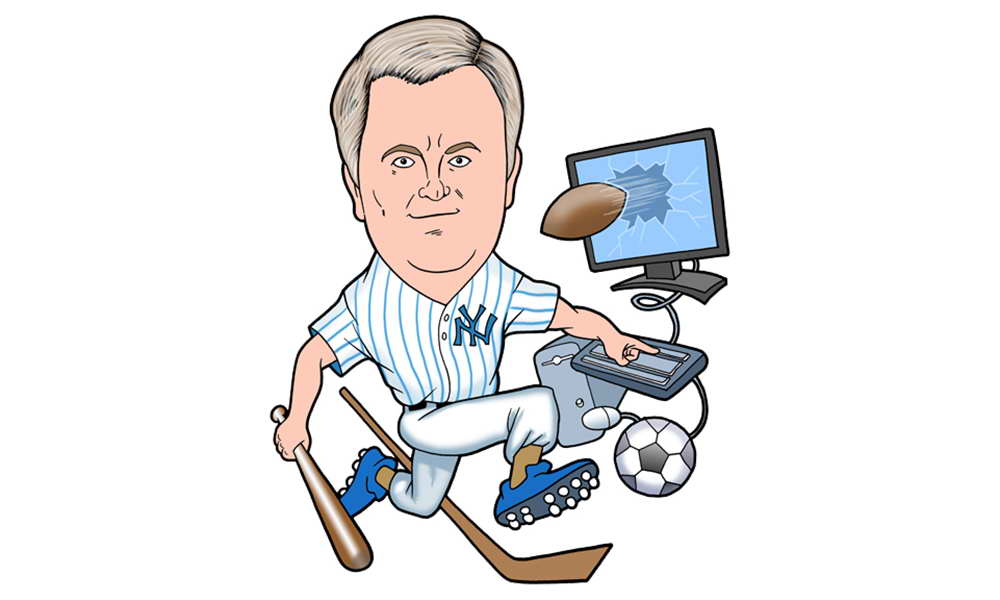
10/9: Baseball’s Bond
October 9, 2009
These are the best of times and the worst of times.
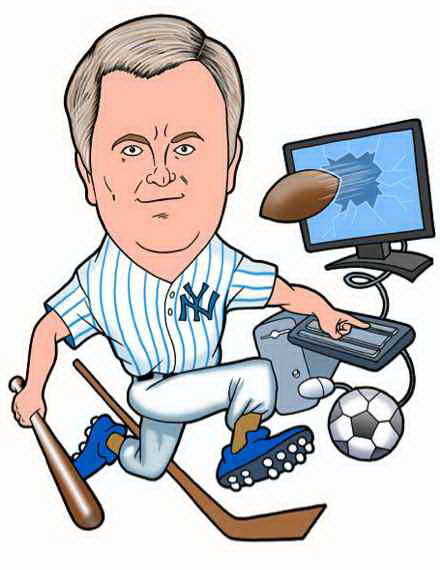 The best of times is the excitement as we go down to the wire of the 2009 baseball season where more is riding on each pitch and every at bat.
The best of times is the excitement as we go down to the wire of the 2009 baseball season where more is riding on each pitch and every at bat.
For those of us whose passion is the National Pastime, the worst of times is the annual realization we are also fast approaching that void in our lives between the last out of the World Series and that magical day in February when the pitchers and catchers report.
And for us Yankees fans, let’s also hope that Charles Dickens’s memorable line in “A Tale of Two Cities” isn’t some sort of foreshadowing of a fluke which has been prevalent in the recent post-season history of Major League Baseball—a wild card team emerging as World Champions.
But let’s enjoy the moment, and along with it the excitement of Sabathia, Burnett, Teixeira, and Swisher experiencing for the first time what it means to be a Yankee in October.
It is also the time when we pair up and predict what the next few weeks will hold.
Prior to the beginning of this year’s ALDS, I had concluded that the St. Louis Cardinals were hands down favorites in the NL. Pujols and crew seemed to dominate in comparison to the Phillies, Rockies, and Dodgers. But, since Joe Torre’s crew has dominated the first two matchups, I am now leaning toward a return to the magical time of the 1950’s where the Yankees and Dodgers were always on the menu, the games were always played in the daytime, and a young red-headed boy in Texas would stay glued to the radio.
The world would stop and even the teachers would allow the entire class to listen to the games. I still feel the pain of losing my 25 cents in lunch money on a World Series bet the day Bill Mazeroski hit that high hanging curveball served up by Ralph Terry at Forbes Field in the 7th game of the 1960 classic. It was the first time a World Series had been won with a walk-off home run. I am still adamant that if Tony Kubek had not been the victim of that bad hop at shortstop which hit him in the throat in that same game, not only would Bobby Richardson still be the outstanding player of that Series, but the course of history would have changed.
I was sitting with my best friend, Gary Canada, in Mr. Baldock’s 8th grade science-health class listening to the radio when all of this occurred. (It’s similar to one remembering where they were when they learned President Kennedy was assassinated or where they were on September 11, 2001.)
In 1993, 33 years later, sitting around a campfire in Palestine, Texas, Gary and I and our wives were listening to the radio when it happened for just the second time in the history of the game — Joe Carter hitting the walk-off against Mitch (Wild Thing) Williams. The game was still the cement which had connected two lifelong friends.
It’s a game which connects young and old; an 80-year old grandfather can talk to an 8-year old about baseball. It bridges generation gaps, as well as geographical gaps.
The first time I met Lee Miringoff and Barbara Carvalho was one of those encounters in life you never forget. It was 1998, and here was this Texan who had just taken over as Executive Producer for Political Coverage at WNBC in New York meeting for the first time the folks who would be conducting preference polls and analyzing election results and exit polling.
The two pollsters noticed a book on my shelf — a book on Yankee Stadium. Lee and Barb remarked about the book and told me that its author, Ray Robinson, was Lee’s father-in-law. (Ray is also THE authority on Lou Gehrig.)
I replied that I had always been a Yankees fan.
Well, their eyes rolled as if to say, “Yeah, right. I am so sure that some guy from Texas has always been a Yankees fan.” (Remember the reaction when Hillary Clinton had uttered similar words a couple of years later when she had decided to run for the United States Senate from New York.)
I caught the look from Lee and Barb, and threw down the gauntlet rather defiantly: “Okay, guys. If you two are such huge Yankees fans, then tell me: who wore
number 11 before Hector Lopez when he joined the team in 1959.”
Neither Lee nor Barb could come up with the answer, and without skipping a beat, I told them it was Jerry Lumpe and they could “look it up”. That is what my
great-grandmother’s first cousin on my mother’s side of the family would have said. His name was Charles Dillon Stengel, and he was the manager of the Yankees that terrible day in 1960 at Forbes Field when Mazeroski beat my Bombers.
But, that afternoon in 1998 sitting with Lee and Barbara in my New York office, a friendship was cemented which has become a life-long bond. And, it’s all because of baseball.
So, regardless of who you are for, this is a special time of the year for all of us who share the love of the game.
And, the next for the next few weeks, we will put all our other activities on a back burner as we live and die on each pitch.
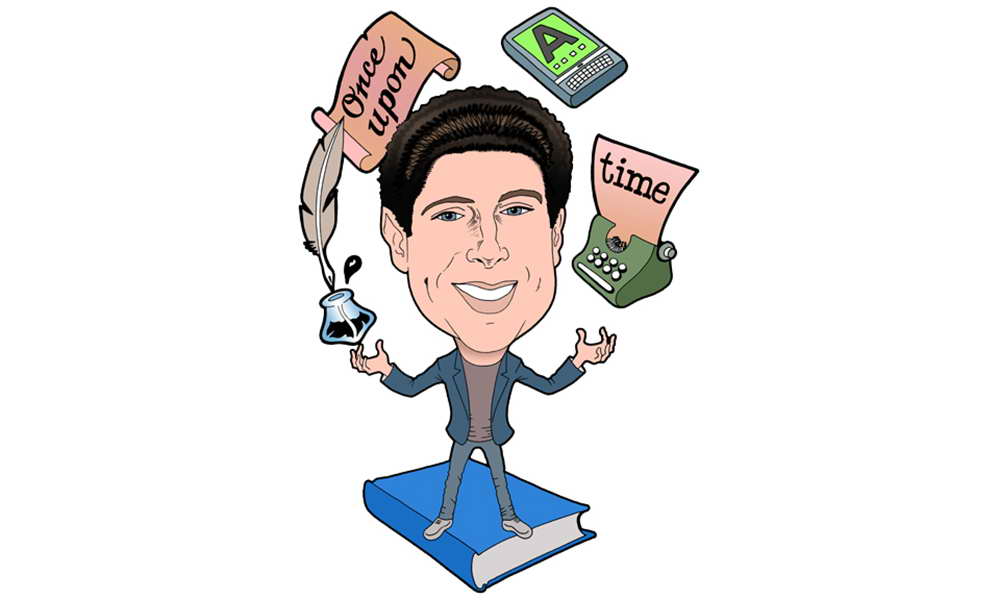
10/7: Offensive Language
October 7, 2009
Initially, I was going to write about all the annoying phrases polled about in the recent Marist survey. I was going to discuss why they irritate me (or why they don’t — Caroline Kennedy would have been happy to see I that have no problem with compulsive use of the phrase, “you know”). But, then I realized I use all of those expressions myself. At the end of the day (there’s one right there!), I have no business taking on the role of guardian of the English language, at least when it comes to the way other people speak.
Instead, I will turn the critical lens on my own irksome verbal tics. Do you ever have that feeling immediately after using a certain word that you wish you hadn’t and pause in disgust with yourself, much to the confusion of your partner in conversation? Well, these are the words that give me that feeling.
Amazing, brilliant
These terms are brothers in the family of inappropriately strong compliments. I use “amazing” so often that I am beginning to wonder if I really am so easily amazed. If you take me literally, I’ve been amazed by a sunset, the sound of a motorcycle engine, a soft plane landing, and a dog’s ability to catch a Frisbee. As for “brilliant,” I often use it when referring to a film, book or TV show I enjoyed. Did I really need to describe that Stephen Colbert sketch as “brilliant?” Couldn’t I have gone with “clever” or “well-done?” Obviously, the word loses a bit more of its luster every time it’s used. On a related note, another word used way too much is “genius.” It’s part of our culture of extreme flattery. This article from the Atlantic Monthly suggests the overuse of “genius” by pointing out its prevalence in discussions about football coaches. Do Shakespeare, Einstein, and Bill Belichick really belong in the same category?
That’s funny
Is it, really? Then why do I say this only when I’m not laughing? It’s a polite impulse, but it really results in a double-insult: not only do I think the joke is not funny, but I think the joke-cracker is gullible enough to believe that I express mirth not with laughter, but by declaring it outright. Anyone who truly wants to be polite should teach him or herself a convincing fake laugh.
You know what I mean?
When I use this in relation to a complex topic, it’s perfectly acceptable. If I’m explaining, say, how a neuron works (for the record, I don’t actually know how it works), then I am permitted to end a sentence with, “you know what I mean?” But, I should refrain if I’m explaining how to work the TV remote. I once had a supervisor who ended his critiques of my work with arched eyebrows, a cocked head and a conciliatory “you know what I mean?” I think he was trying to draw an affirmative response from me in place of explicit acceptance of his criticism. Every time I was tempted to say, “Yes, of course I know what you mean, and I disagree completely.”
What’re ya gonna do?
I use this expression too much. When I say it, I feel as though I’m trying to channel an overworked detective from a TV police drama — bags under his eyes, discussing a problem that just won’t go away. “It’s a tough situation” works better for me.
Or something like that
When I don’t know the exact answer, I’ll end my response with “or something like that,” just so you can’t hold me to it. It’s often replaced by the equally vague “or something to that effect.” Or, I’ll begin my sentence with “I think” or “I guess.” There should be an expression for expressions like these — perhaps “envagueners” or “imprecisioners.” You know, something in that vein.
I mean
This might be the most useless expression in my arsenal. Rarely do I use “I mean” to clarify some point that has been misunderstood — in that case, it would be acceptable. Instead, I use it as a completely unnecessary introduction to what I’m about to say. If you ask me if I think it’s going to rain, I might say, “I mean, there are clouds in the sky, and the air has that rainy smell… “. But, I have no idea how to define the role “I mean” has in that sentence. I mean, there’s just no reason for it to be there.
You might be wondering if there’s really any reason for me to eliminate these expressions from my conversational repertoire. It’s true that most discussions are informal and most interlocutors, if put under scrutiny, would be guilty of these small verbal crimes. But as any English teacher will tell you, while thought affects speech, the converse is true, too. When I say something is “amazing,” for example, I may be failing to process what I really think about it. The lack of precision and nuance in my spoken words diminishes the quality of my thoughts, which, when expressed, come out equally pedestrian. It can be a negative spiral of empty language.
So, while I would never tell someone to stop using a certain word or phrase, I would encourage them, in general, to put more effort into expressing themselves as best they can. They might start here, a site that provides the meanings and origins of scads of commonly used phrases, such as “take umbrage” and “cock and bull story.” Not only might they add to their stable of sayings, but they’d gain more insight into how the meanings of words and phrases evolve in unlikely, unpredictable ways.
You know what I mean?
Related Links:
10/7: “Whatever” Takes Top Honors as Most Annoying
Our Genius Problem (from the Atlantic Monthly)


